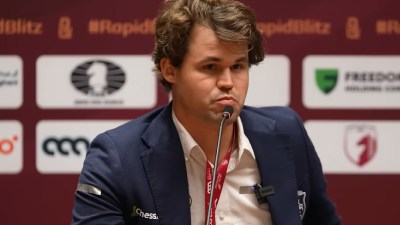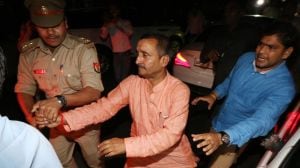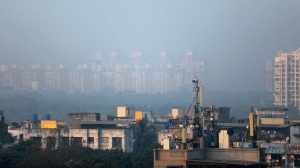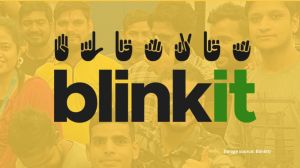PR in the net
Policemen and residents of Vadodara8217;s communally sensitive areas fight it out. At a volleyball tournament.

Residents of communally sensitive areas in Vadodara and the city police square off against each other every Sunday in a hard-fought battle. But instead of tear-gas, stones and lathi-charges, there is a ball game. Organised by the police department, the volleyball tournament between policemen and residents, tries to bridge the widening gap between the city8217;s overworked police force and the wary public.
8220;We were surprised when a police inspector called us one day and said that they wanted to play volleyball with us. We had no idea why, and thought it was a metaphor for something else,8221; says Don Bosco School sports teacher Nalin Thaka. However, after being convinced it was only a volleyball match, a team was put together. The police win these matches usually with ease. 8220;The police are clever and have been practising for this scheme, but we just go and play,8221; says Thaka, who is part of the Narsiji Ni Pol team from the sensitive Walled City area.
Initiated in February by the Vadodara Commissioner of Police, P C Thakur, these matches do more than improve police-public relations. Explains Thakur, 8220;these matches are a welcome breather for the city8217;s policemen, who have been perpetually involved in gruelling bandobasts since this year began.8221; While mohalla meetings between two communities are becoming common, more so in riot prone or communally sensitive areas, a sporty spin off has been added by Vadodara police, the first ever in Gujarat, with the added participation of police teams as well.
But a question on everyone8217;s minds is why volley ball and not cricket? 8220;It requires no infrastructure or special practice. Also most youth play the game,8221; answers Thakur.
Every Sunday, matches are held between a police station squad and civilian teams from the area under that police station8217;s purview. The police team play as many as five matches a day. City police inspector D M Waghela who is on one of these teams says, 8220;we go into the mohallas and tell people to form teams. They in turn try and rally friends and relatives for the matches.8221; Waghela adds that the matches are an excellent way to get close to the public. 8220;Also, we meet more people who we can call in for support and information during tense times,8221; he points out.
Says Asif Khan, another player from the Fatehpura team, 8220;During the riots, we were scared of the police, but while playing these matches, all we want to do is win.8221;
Interaction with the police, says Asif, is not restricted to playing time. 8220;Before and after the match, we talk to the policemen like friends,8221; he adds.
The matches start sharp at 4 pm on Sundays and extend up to 7 pm.This is not the first time in Gujarat that a sport has been used to foster communal harmony. Earlier sporting celebrities had descended on Halol in Panchmahals district after the post-Godhra riots, where a series of matches were organised between team comprising members of both communities. Organised by local NGOs, the event couldn8217;t sustain.
In Vadodara, the idea has achieved moderate success so far, but its popularity is only rising. According to Deputy Commissioner of Police A V Vasava, it8217;s helping bridge the communal divide. 8220;Nobody is really bothered which community another player belongs to or whether he is from the police. More and more players want to join in now,8221; he says.
- 01
- 02
- 03
- 04
- 05































